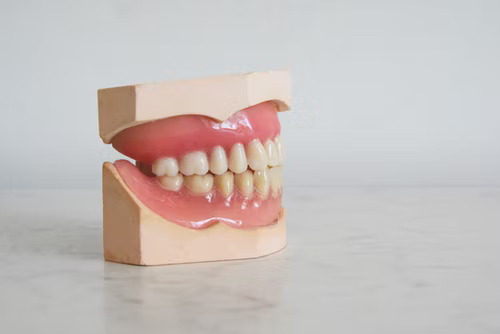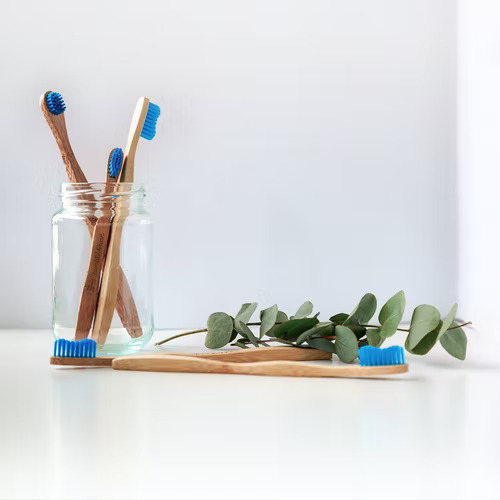You may have heard that you should brush your teeth at least twice a day, but what happens if you don’t brush your teeth? Brushing your teeth helps remove plaque and bacteria from your teeth and gums. This can help prevent tooth decay and gum disease. If you don’t brush your teeth, plaque will build up on your teeth. This can lead to tooth decay and other dental problems.

If you don’t brush your teeth, you will likely get cavities. Cavities are a hole that forms in your teeth from bacteria. If the cavity is left untreated, it can cause tooth decay and even tooth loss.
How long can you go without brushing your teeth?
If you don’t brush your teeth, eventually, your teeth will fall out. Not brushing your teeth can also cause gum disease, leading to tooth loss. Other problems that can occur if you don’t brush your teeth are cavities and bad breath.
Cavities happen when the bacteria in plaque produce acids that eat away at your tooth enamel. Once the enamel is gone, the bacteria can get into the inner layers of your tooth, causing a cavity.
Bad breath, or halitosis, is caused by the buildup of bacteria in your mouth. This bacteria produces sulfur compounds, which smell unpleasant. If you don’t brush your teeth, this bacteria will continue to grow and cause bad breath.
What happens if you don’t brush your teeth for a month?
If you don’t brush your teeth for a month, you may experience some serious oral health problems. Your teeth may become yellow or discolored, and you may develop cavities and gum disease.
Without proper dental hygiene, your mouth can become a breeding ground for bacteria, which can lead to bad breath. You may also be at increased risk for tooth loss if you don’t brush your teeth regularly. So, it’s important to make sure that you brush your teeth at least twice a day and floss daily to maintain good oral health.
How do you tell if your teeth are rotting?
The first sign of tooth decay is usually a toothache. This happens when the nerve endings in the tooth become irritated by the acidic environment created by plaque bacteria.
As the decay progresses, the tooth may become sensitive to hot or cold temperatures, sweet foods, or touch. The tooth may also start to look discolored. You may see white spots or patches on the teeth. In advanced stages of decay, a hole (cavity) can form in the tooth, and eventually, the tooth may fall out….Read more
If you think you might have a cavity, it’s essential to see your dentist right away so that it can be treated before it gets worse. Untreated, tooth decay can lead to severe infections, pain, and even tooth loss.
So, what can you do to prevent tooth decay?
The best way to protect your teeth is to brush and floss regularly and to see your dentist for regular checkups and cleanings. Be sure to use a toothbrush with soft bristles and toothpaste that contains fluoride. And don’t forget to eat a healthy diet! By following these simple tips, you can help keep your teeth healthy and strong for years to come.
If you don’t brush your teeth, plaque will build up on your teeth. Plaque is a sticky film of bacteria that forms on your teeth. If plaque is not removed, it can harden and turn into tartar. Tartar is a hard substance that can only be removed by a dentist. Plaque and tartar can cause tooth decay and gum disease.
Tooth decay is the breakdown of tooth enamel, the hard outer layer of your teeth. Tooth decay can occur when plaque is not removed from your teeth. Plaque produces acids that eat away at tooth enamel. Once tooth enamel is gone, the next layer of your tooth, called dentin, is exposed. Dentin is a softer material than enamel, and it can also be damaged by plaque acids.
If tooth decay is not treated, it can cause pain, tooth loss, and infection. Gum disease is another dental severe problem that can occur if plaque is not removed from your teeth. Gum disease is an infection of the gums and bones that support your teeth. Gum disease can lead to tooth loss and other serious health problems.
Can Dentists tell if you don’t brush?
Yes, dentists can tell if you haven’t been brushing your teeth regularly. If you don’t brush your teeth, plaque and tartar will build up on your teeth. Plaque is a sticky film of bacteria that forms on your teeth, and tartar is plaque that has hardened onto your teeth.
Dentists can see plaque and tartar on your teeth during a dental exam, and they will be able to tell if you haven’t been brushing regularly. If you don’t brush your teeth, the plaque and tartar will eventually lead to tooth decay and gum disease.

Tooth decay is a severe problem that can cause pain, tooth loss, and infections. Gum disease is an inflammation of the gums that can lead to tooth loss and other serious health problems. So, if you don’t want your dentist to know that you haven’t been brushing your teeth, make sure to brush twice a day and floss regularly!
Should I brush after each meal?
It is unnecessary to brush after each meal, but it is essential to brush at least twice a day. The best times to brush are after breakfast and before bedtime. If you can, also brush after lunch or after snacks. Plaque is a sticky film of bacteria that forms on teeth. Plaque that isn’t removed can harden into tartar (calculus). Tartar can only be removed with a professional cleaning by a dental hygienist.
Brushing and flossing help remove plaque before it turns into tartar. If you don’t brush your teeth, the plaque will turn into tartar. Tartar is a hard deposit that can only be removed by a dental professional. If tartar is not removed, it can lead to gum disease. Gum disease is an infection of the gums that can damage the bone around your teeth. Gum disease is the leading cause of tooth loss in adults.
How can I prevent plaque and tartar?
You can prevent plaque and tartar by brushing your teeth at least twice a day and flossing once a day. You should also visit your dentist regularly for professional cleanings and checkups.
When should I use mouthwash?
Mouthwash can be used in addition to brushing and flossing or as an alternative if you are unable to brush your teeth. It is essential to choose a mouthwash that contains fluoride, as this will help to prevent tooth decay.
If you do not brush your teeth, the plaque on your teeth will turn into tartar. Tartar is a hard substance that can only be removed by a professional cleaning. Tartar can cause gum disease and tooth loss. Therefore, it is essential to brush your teeth twice a day and floss daily. You should also visit your dentist regularly for checkups and cleanings.
Mouthwash can help to prevent plaque from turning into tartar. It can also help to reduce the bacteria in your mouth that can cause bad breath. When choosing a mouthwash, be sure to read the label and choose one that contains fluoride.
If you have any questions about brushing your teeth or using mouthwash, be sure to ask your dentist or dental hygienist. They can help you choose the products that are right for you and your oral health needs.
Does mouth wash help to prevent plaque?
Mouthwash can help prevent plaque, but it is not as effective as brushing and flossing. Plaque is a sticky film of bacteria that forms on teeth. Mouthwash can help remove plaque, but it cannot reach all areas of the mouth. For best results, use mouthwash along with brushing and flossing.
Can mouthwash prevent gum disease?
Mouthwash can help prevent gum disease, but it is not as effective as brushing and flossing. Gum disease is an infection of the gums that can lead to tooth loss. Mouthwash can help remove plaque, but it cannot reach all areas of the mouth. For best results, use mouthwash along with brushing and flossing.

Can mouthwash prevent cavities?
Mouthwash can help prevent cavities, but it is not as effective as brushing and flossing. Cavities are holes in the teeth that are caused by decay. Mouthwash can help remove plaque, but it cannot reach all areas of the mouth. For best results, use mouthwash along with brushing and flossing.
Conclusion
If you don’t brush your teeth, you will get cavities. Cavities are holes in your teeth that are caused by bacteria. When the bacteria eat sugar, they produce acid. The acid then eats away at the tooth enamel, causing a cavity.
If the cavity is not treated, it will continue to grow and eventually damage the tooth. If the damage is severe, you may need to have the tooth extracted. So, it’s essential to brush your teeth twice a day and floss once a day to prevent cavities. Thanks for reading!
Additional Contents:
What Happens To Tattoos When You Lose Weight
Do Fingerprints Grow Back If Burnt?
Can a Turtle be Without a Shell?
PPS Or PSS?
How to Unscrew a Stripped Screw



